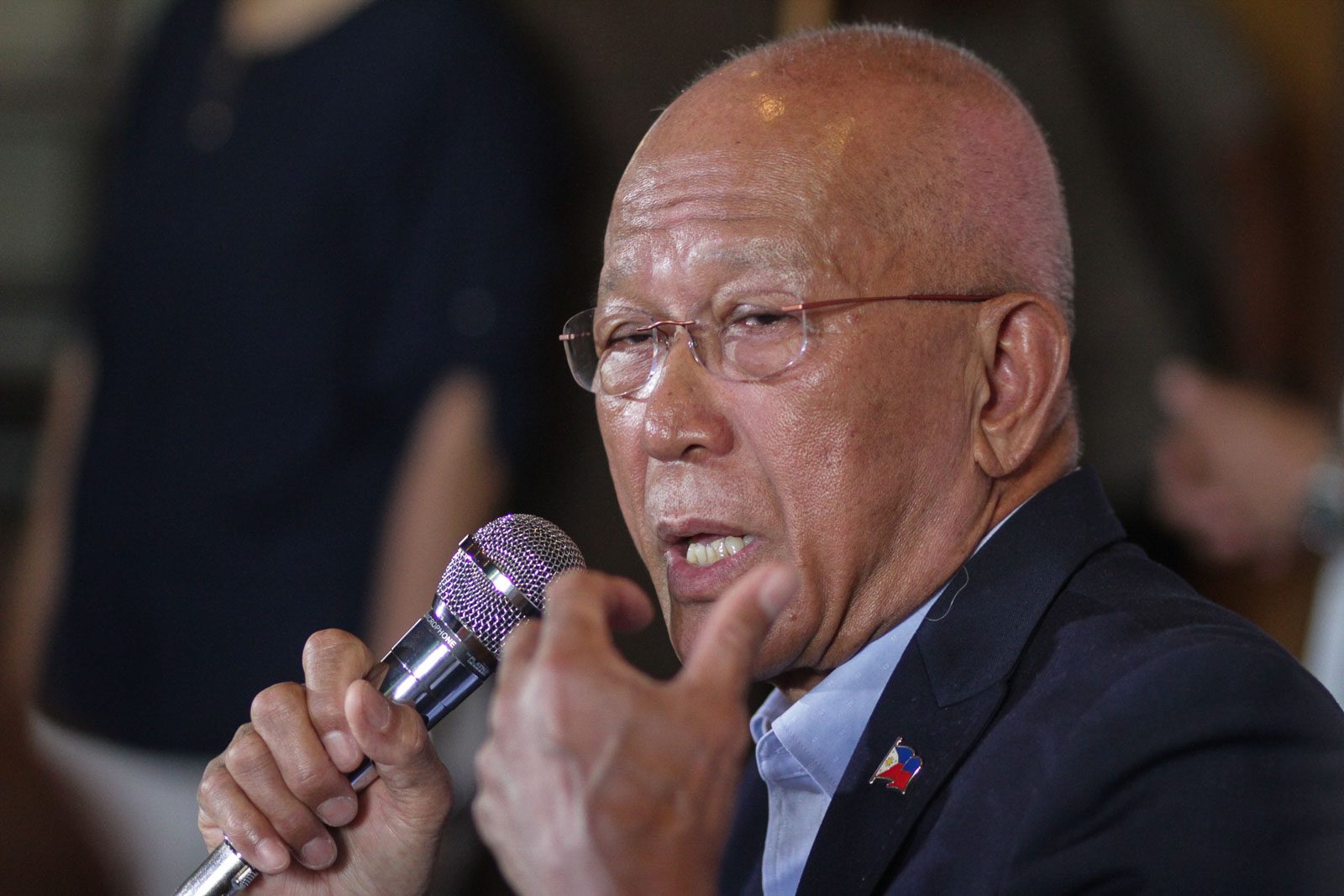SUMMARY
This is AI generated summarization, which may have errors. For context, always refer to the full article.

MANILA, Philippines – The emergence of online gaming hubs operated by Chinese workers should not really be a cause for concern, said Defense Secretary Delfin Lorenzana, but the fact that they are located near military and police camps has made him think twice.
“Personally, I think there should be no need to worry,” Lorenzana told reporters on Friday, August 16.
“Pero kung makikita mo na sigurong maraming tao diyan na palaging nandiyan (But when you already see many people there who are always there), it’s very easy for all these people to, siguro (perhaps), shift their activities to spying,” he added.
Hubs for Philippine Offshore Gaming Operators (POGO) are located or are being constructed near the national headquarters of the military in Camp Aguinaldo and the police in Camp Crame, both in Quezon City; the headquarters of the Army in Fort Bonifacio in Taguig and the Air Force in Villamor Air base in Pasay; and the Sangley Point Naval Base in Cavite City.
Placing POGOs in self-contained hubs would protect Chinese workers’ rights and ensure better working conditions, the Philippine Amusement and Gaming Corporation (Pagcor) said earlier this month.
“I support the idea to put them in a hub malayo sa mga kampo at doon lang sila para ma-control sila ng mga authorities at ng Finance naman, at saka ng Immigration, para kung sino ‘yung pumapasok at saka lumalabas,” Lorenzana said.
(I support the idea to put them in a hub far from the camps and have them stay there so that they can be controlled by authorities and by the [Department of] Finance and by the Immigration, to keep track of who comes in and who goes out.)
POGOs are proving to be a viable income source for the government. They paid P579 million in taxes in 2018, and owe another P4 billion, the government said.
Pagcor, which regulates POGOs, saw its revenues soar to P68 billion in the same year.
Armed Forces of the Philippines (AFP) chief General Benjamin Madrigal Jr said security officials provide information to “balance out economic considerations” with regard to POGOs.
“We have always advocated that development and security should come together. At the end of the day, sabi nga, maliban sa ating mga maaring sources of income, na dapat kasama rito ‘yung pangangalaga (As they say, aside from our possible sources of income, it should go with taking care of)…all other security considerations in undertaking these activities, naisasama natin (we should take them into account),” Madrigal told reporters on Friday.
‘War and cooptation’
But for security and defense analyst Jose Antonio Custodio, spying is “the least of your worries” about POGOs.
“POGOs are the mother of all money laundering, which can benefit crooked Filipino politicians in the form of bribes on matters of questionable sales of property…and can influence Filipino politicians to play double for Chinese interests,” Custodio told Rappler.
Money laundered through POGOs can fuel dubious activities such as black sand mining and support to political dynasties, Custodio said, and other underhanded ways that “China can establish a sense of continuity of its influence in the Philippines.”
POGOs should be seen as “part of China’s unrestricted war and cooptation of a victim nation.”
By sounding the alarm on possible espionage, “the defense establishment could say they did their part,” Custodio added, “but they are questioning the wrong thing, and China could always deny it and say, no.” – Rappler.com
Add a comment
How does this make you feel?
There are no comments yet. Add your comment to start the conversation.